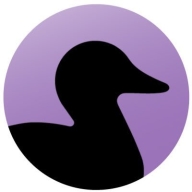

Find out in this report how the two Fuzz Testing Tools solutions compare in terms of features, pricing, service and support, easy of deployment, and ROI.
| Product | Market Share (%) |
|---|---|
| GitLab | 26.7% |
| Defensics Protocol Fuzzing | 18.3% |
| Other | 55.0% |

| Company Size | Count |
|---|---|
| Small Business | 36 |
| Midsize Enterprise | 10 |
| Large Enterprise | 46 |
Defensics® fuzz testing is a comprehensive, powerful, and automated black box solution that enables organizations to effectively and efficiently discover and remediate security weaknesses in software. By taking a systematic and intelligent approach to negative testing, Defensics allows organizations to ensure software security without compromising on product innovation, increasing time to market, or inflating operational costs.
GitLab offers a secure and user-friendly platform for CI/CD pipeline management, code repository control, and collaboration, enhancing development speed and efficiency. It facilitates automation with extensive customization and tool integration, ideal for DevOps processes.
GitLab supports source code management, version control, and collaborative development. It's frequently used in CI/CD processes to automate builds and deployments while integrating DevOps practices. GitLab allows companies to manage repositories, automate pipelines, conduct code reviews, and maintain development lifecycles. The platform supports infrastructure and configuration management, enabling efficient code collaboration, deployment automation, and comprehensive repository handling. Many organizations commit and deploy developed code using GitLab's capabilities.
What are GitLab's most valuable features?In specific industries, GitLab serves as a backbone for source code management and CI/CD implementation. Companies leverage its capabilities for infrastructure management and deployment automation, thus streamlining project delivery timelines. Its ability to handle configuration management and code repositories effectively aids in maintaining development lifecycles, making it a preferred choice for organizations committed to enhancing their DevOps practices.
We monitor all Fuzz Testing Tools reviews to prevent fraudulent reviews and keep review quality high. We do not post reviews by company employees or direct competitors. We validate each review for authenticity via cross-reference with LinkedIn, and personal follow-up with the reviewer when necessary.